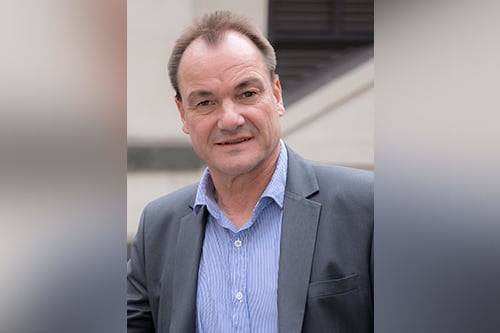

For Mike Brockman (pictured), the CEO of ThingCo and the founder of InsureTheBox, taking technology to the next level has been a driving force behind his rise to become one of the world’s experts in motor insurance. Being a pioneer in telematics has given Brockman an incredible overview of the insurance sector which he believes is ready for the next generation of telematics. ThingCo recently introduced its latest offering to the insurance sector, a compact self-installed telematics device called ‘Little Theo’ which features intelligent voice and crash detection.
Read more: ThingCo introduces Little Theo
Telematics has traditionally been something that everybody has found it hard to put into practice, he outlined, and to make sure that the value they receive outweighs the cost of the technology. Brockman noted that when he first started InsureTheBox, people told him that it would not work as nobody wants to be monitored or to have a box installed in their car. The success of that initiative, he said, proves that providing an idea has the right proposition, customers will embrace it as long as it has benefits for them.
“Consumers are demanding more action, more choice, more engagement and this sort of technology ticks all those boxes,” he said. “Everybody is talking about digitisation but what does that mean? What it really means is more engagement with customers.”
This engagement is something that the insurance industry has traditionally not been very good at, Brockman noted, but is striving to improve and the more services that can be offered means more benefits for the customers in the long-term. This is not a means of simply obtaining and using data, he said, but of providing concrete benefits that encourage customers to drive better and incentivises them to showcase the right behaviour.
Taking telematics to the next level has meant trying to change the mindset of insurers by putting together a telematics proposition which is good for everybody, he said, and this is done by making the actual technology itself a consumer-desirable purchase in its own right. This has meant making it cheaper for insurers using the latest technology available, he said, and also by creating devices which provide much greater customer benefit.
‘Little Theo’ is every inch the next generation of telematics. Instead of having to be professionally fitted and kept out of sight, it is a smart-looking device which is easy and free to fit, Brockman explained, and which has its own SIM card and crash detectors as well as voice recognition for a fully connected experience. How far technology has come in recent years has been encapsulated by the solar panel advantage of ‘Little Theo’, he outlined, as only a few years ago it was not possible to extract enough power from such panels but now they allow it to function essentially limitlessly.
Beyond the practical benefits of such innovations and the highly accurate data they are capable of generating, Brockman is an advocate of the role of telematics from a safety point of view and he is proud of the role that telematics has played in reducing road deaths, particularly with regards to young drivers.
The cost of motor insurance premiums for young people has not only been reduced in the last decade due to the presence of a telematics device in their cars, he said, but also because these technologies have educated young drivers on how to be sensible when they first start driving and encouraged them to continue this behaviour. This passion for the role that telematics can play beyond simply reducing insurance premiums was a consideration in the creation of ‘Little Theo’, Brockman detailed, which has the capacity to provide value to a segment of society perhaps not always front of mind for insurance companies.
“Because [this device] gives so many services, and because it is cheap enough, we think that ‘Little Theo’ can be used way beyond the young driver segment,” he said. “And just like I used to have a concern for younger people unable to afford insurance, at the other end of the spectrum you have older people.”
When an older person, normally between 75 and 80 starts thinking about giving up driving because they are worried about the implications of continuing, Brockman said, it can become a significant mental health issue. He cited research which has found that once an older person has given up their car, their life expectancy often reduces as they fall prey to depression from being confined to their house. The coronavirus outbreak has given everybody a taste of what it feels like to feel trapped in your home, he said, and he believes that telematics devices can empower older drivers to continue driving for a longer time.
“Wouldn’t it be nice to put a small appliance in their car that gives them a bit more confidence, and helps them to keep driving for longer?” he said. “This means that even if they did have an accident, the device can lead them through what to do and to make them feel safe and protected. That’s the sort of thing that we’re trying to push with these devices, to actually promote them as something that will create safety, make people more confident in their cars and provide an added value service, from insurers – a caring service.”
